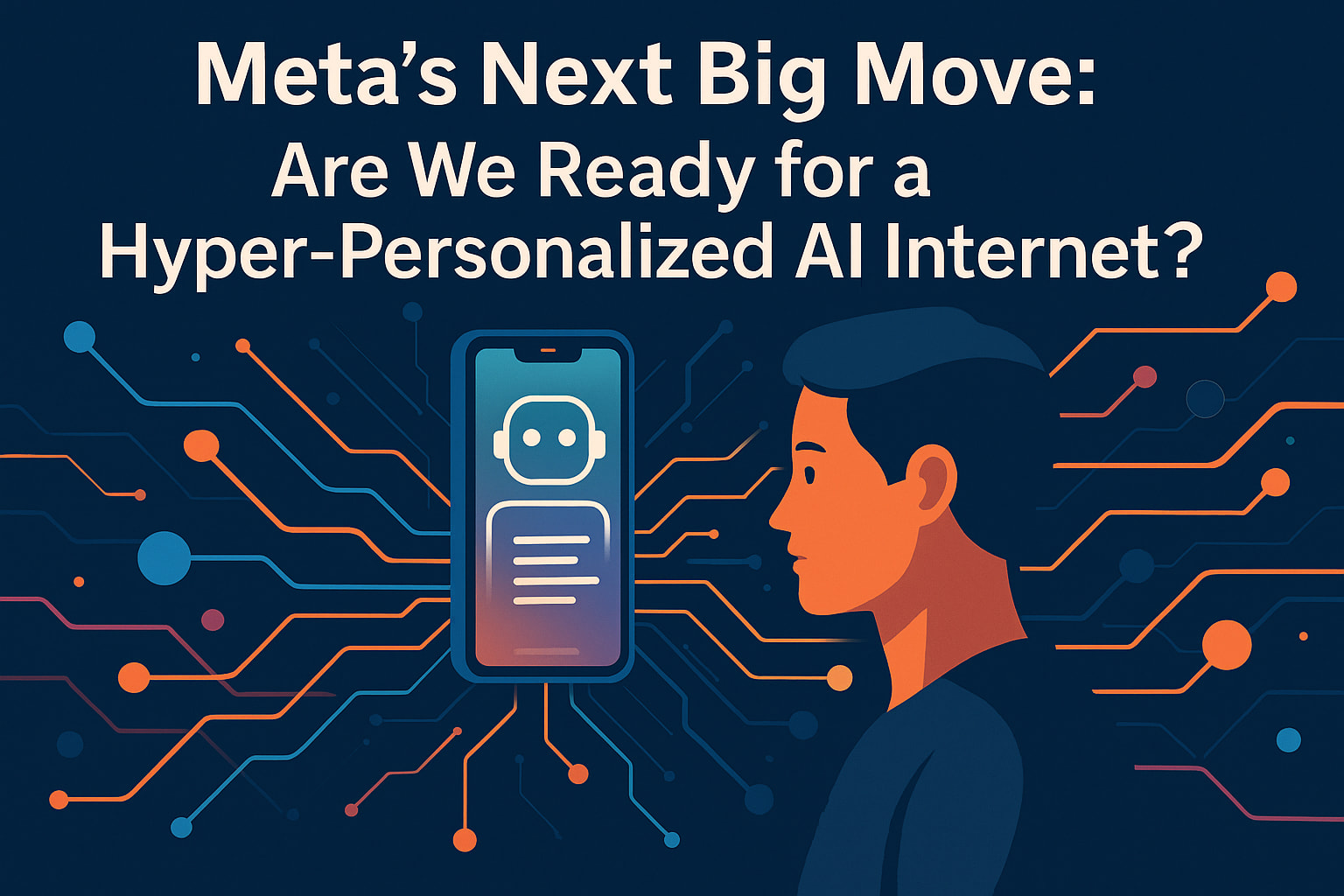🧠 Meta Is Rebuilding the Internet - One AI Server at a Time
Mark Zuckerberg doesn’t just want Meta to be a social media company. He wants it to be the AI powerhouse behind how you interact with the entire internet. In 2025, Meta announced an unprecedented surge in investment toward AI infrastructure: giant data centers, server clusters, and high-performance computing units, all aimed at training and deploying smarter, more powerful AI models.
According to reports from Bloomberg and Business Insider, Meta is building temporary tent-based AI server farms, with a long-term goal to operate one of the most advanced AI superclusters in the world. This means your experience across Facebook, Instagram, WhatsApp, Threads, and even smart glasses will be powered by predictive, generative, and adaptive AI.
Zuckerberg himself called it a “hundreds of billions of dollars” project over time.
—
🔍 What Does That Mean for You?
At first glance, it seems exciting. Personalized feeds. AI assistants that finish your sentences. Smarter searches. Targeted ads that feel less annoying. But here’s the catch: all of this is only possible because of you - more specifically, the data you generate.
The more you use Meta’s platforms, the more information you give away:
What you likeWhat you watchHow long you pause on a postWhat makes you angryWhat you say in DMsWhat content you don’t engage with
Now, imagine this data being processed at supercomputer speed, analyzed not just for marketing, but to shape what you see, feel, and even believe.
—
🧩 The Line Between Convenience and Control
It’s easy to welcome convenience. Who doesn’t want a platform that “just gets you”? But hyper-personalization can become hyper-persuasion when you’re shown only what confirms your bias.
Here’s the risk:
Your news feed could become an echo chamber.Your recommended content could steer your mood.Your ads could manipulate your purchases.Your digital environment stops challenging you - and starts nudging you.
What we mistake as helpful could slowly become a tool of behavioral engineering.
—
🔐 Your Data: Who Really Owns It?
One of the most under-discussed parts of Meta’s AI empire is data retention. Even when you think you’ve deleted something, it’s often not gone.
“Delete” doesn’t mean erased - it often just means “hidden from your view.”
Meta, like many tech giants, uses user data to train AI models. That means your interactions - even private messages - could be part of the fuel for AI-generated responses, recommendations, and patterns.
And here’s where it gets darker: Once AI is trained on your data, it can’t un-learn it. Even if you deactivate your account, the model has already evolved using your behavior.
So, ask yourself:
Are you in control of your online identity?Or are you a training set in someone else’s machine?
—
🧠 My Advice, If You’re Using AI Tools
We’re not saying stop using Meta or AI. But before you engage with any platform, ask yourself these questions:
– What does it need access to?
More access = more risk. If an app wants your messages, files, and microphone, be cautious.
– Can I delete my data later?
Most platforms don’t really erase your digital footprint. They just make it invisible to you.
– Is it helping me - or studying me?
There’s a big difference. Helpful tools offer transparency. Manipulative ones hide intentions.
– Who made it?
Trust matters. If the company behind the tool has a history of surveillance or data leaks, take that seriously.
—
📊 A Few Creepy Truths You Might Not KnowMeta has confirmed it’s been scraping public data since 2007 to improve targeting and personalization.They’re now investing in AI-powered glasses that can read your surroundings - and maybe even emotions.Your online activity is often sold, cross-referenced, and stored - across platforms you never realized were linked.
And the average person generates 1.7 MB of data per second. That’s enough to build a complete behavioral profile in less than a week.
—
💡 Final Thought: Is AI Helping You or Replacing You?
Meta’s AI vision promises to enhance the digital world. But with every “smart” improvement, it’s also shaping your behavior, curating your worldview, and locking your preferences into code.
It’s a brilliant strategy - for Meta.
For users? It’s a good time to ask hard questions.
—
📌 If You’re Curious, Start Here:Audit your data settings on Facebook and Instagram.Limit access permissions for apps you rarely use.Try asking Meta AI: “How much do you know about me?”Pay attention to how your feeds respond to your moods and choices.And when in doubt, assume everything you share is forever.
—
🔚 Some tech is made to serve you.
Other tech is made to study you.
Know the difference.

